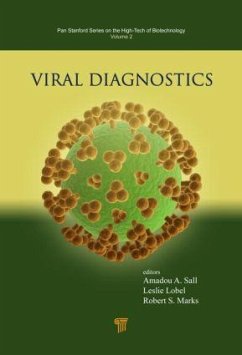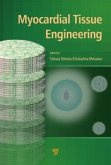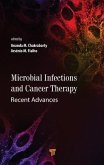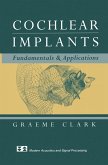Viral Diagnostics
Advances and Applications
Herausgeber: Marks, Robert S; Sall, Amadou; Lobel, Leslie
Viral Diagnostics
Advances and Applications
Herausgeber: Marks, Robert S; Sall, Amadou; Lobel, Leslie
- Gebundenes Buch
- Merkliste
- Auf die Merkliste
- Bewerten Bewerten
- Teilen
- Produkt teilen
- Produkterinnerung
- Produkterinnerung
With an emphasis on the newer technologies in development, this book covers a spectrum of topics in the diagnostics and monitoring of viral ailments. The book emphasizes optical fiber and electrochemical immunosensors, reverse genetics, and luminescent molecular imprints of neutrophil biomarkers. The contributors comprise experts from the fields of epidemiology, biotechnology, virology, industry, technologists, and the clinics. With coverage of viruses ranging from influenza to emerging Ebola virus, this text provides readers with a survey of various aspects of the field as well as a glimpse of future possibilities.…mehr
![Myocardial Tissue Engineering Myocardial Tissue Engineering]() Myocardial Tissue Engineering176,99 €
Myocardial Tissue Engineering176,99 €![Microbial Infections and Cancer Therapy Microbial Infections and Cancer Therapy]() Microbial Infections and Cancer Therapy190,99 €
Microbial Infections and Cancer Therapy190,99 €![Viral Hemorrhagic Fevers Viral Hemorrhagic Fevers]() Viral Hemorrhagic Fevers242,99 €
Viral Hemorrhagic Fevers242,99 €![COVID-19 and Immunomodulation with Special Emphasis on Nutraceutical and Herbal Formulation COVID-19 and Immunomodulation with Special Emphasis on Nutraceutical and Herbal Formulation]() COVID-19 and Immunomodulation with Special Emphasis on Nutraceutical and Herbal Formulation178,99 €
COVID-19 and Immunomodulation with Special Emphasis on Nutraceutical and Herbal Formulation178,99 €![Gone Viral Gone Viral]() Justin HartGone Viral25,99 €
Justin HartGone Viral25,99 €![Cochlear Implants Cochlear Implants]() Graeme ClarkCochlear Implants89,99 €
Graeme ClarkCochlear Implants89,99 €![Environmental Endocrine Toxicants Environmental Endocrine Toxicants]() Environmental Endocrine Toxicants190,99 €
Environmental Endocrine Toxicants190,99 €-
-
-
- Produktdetails
- Verlag: Jenny Stanford Publishing
- Seitenzahl: 528
- Erscheinungstermin: 15. Dezember 2014
- Englisch
- Abmessung: 229mm x 157mm x 33mm
- Gewicht: 839g
- ISBN-13: 9789814364430
- ISBN-10: 9814364436
- Artikelnr.: 35462217
- Verlag: Jenny Stanford Publishing
- Seitenzahl: 528
- Erscheinungstermin: 15. Dezember 2014
- Englisch
- Abmessung: 229mm x 157mm x 33mm
- Gewicht: 839g
- ISBN-13: 9789814364430
- ISBN-10: 9814364436
- Artikelnr.: 35462217
Preface
1. Practical Experience with an Integrated Syndromic Surveillance System in the Medical
Veterinary
Nursing
and Emergency Respons
2. Environmental Surveillance for Polioviruses in Israel: Bioerror
Bioterror
or just Mother Nature
. 3. Filoviruses: Deadly Pathogens and Potential Bioweapons
4. Bridging Diagnostics Research
Development
and Commercialization: Diagnostics for the Developing World
5. Oropouche Fever: An Overview of the Epidemiological and Molecular Aspects in the Brazilian Amazon Region
6. Is Avian Influenza Subtype H5N1 a Cause for Concern? A Critical Analysis
7. Diagnostics of Viral Respiratory Diseases
8. Reverse Genetics as a Tool for Detection of Negative-Stranded RNA Viruses
9. Diagnostics of Ebola Hemorrhagic Fever Virus
10. Pathogen Detection Using Spatially Focused Microwaves and Metal-Enhanced Fluorescence
11. Lyssavirus Surveillance and Diagnostics: Focus on Africa
12. Detection of Human Pathogens under Basic Laboratory Conditions by DNA Hybridization Arrays
13. Differentiation between Viral and Bacterial Respiratory Infections Using Chemiluminescence of Polymorphonuclear Leukocytes
14. Phage Display for Viral Diagnostics
15. Nanolithography and Biochips' Role in Viral Detection
16. Optical Fiber Immunosensors and Genosensors for the Detection of Viruses
17. Aptamers
a New Class of Binders
with Particular Focus on Diagnostics and Bioactivity in the Field of Virology
18. Pseudotyped Viruses: A New Sero-Diagnostic Tool
19. Nucleic Acid Isothermal Amplification Technologies and Point-of-Care Diagnostics
20. Recent Ebola and Marburg Viral Hemorrhagic Fever Outbreaks in Uganda: The Need for Quick
Reliable Diagnostic Tests
21. Amperometric Immunoand DNA Sensors for Rapid and Specific Identification of Viruses
Preface
1. Practical Experience with an Integrated Syndromic Surveillance System in the Medical
Veterinary
Nursing
and Emergency Respons
2. Environmental Surveillance for Polioviruses in Israel: Bioerror
Bioterror
or just Mother Nature
. 3. Filoviruses: Deadly Pathogens and Potential Bioweapons
4. Bridging Diagnostics Research
Development
and Commercialization: Diagnostics for the Developing World
5. Oropouche Fever: An Overview of the Epidemiological and Molecular Aspects in the Brazilian Amazon Region
6. Is Avian Influenza Subtype H5N1 a Cause for Concern? A Critical Analysis
7. Diagnostics of Viral Respiratory Diseases
8. Reverse Genetics as a Tool for Detection of Negative-Stranded RNA Viruses
9. Diagnostics of Ebola Hemorrhagic Fever Virus
10. Pathogen Detection Using Spatially Focused Microwaves and Metal-Enhanced Fluorescence
11. Lyssavirus Surveillance and Diagnostics: Focus on Africa
12. Detection of Human Pathogens under Basic Laboratory Conditions by DNA Hybridization Arrays
13. Differentiation between Viral and Bacterial Respiratory Infections Using Chemiluminescence of Polymorphonuclear Leukocytes
14. Phage Display for Viral Diagnostics
15. Nanolithography and Biochips' Role in Viral Detection
16. Optical Fiber Immunosensors and Genosensors for the Detection of Viruses
17. Aptamers
a New Class of Binders
with Particular Focus on Diagnostics and Bioactivity in the Field of Virology
18. Pseudotyped Viruses: A New Sero-Diagnostic Tool
19. Nucleic Acid Isothermal Amplification Technologies and Point-of-Care Diagnostics
20. Recent Ebola and Marburg Viral Hemorrhagic Fever Outbreaks in Uganda: The Need for Quick
Reliable Diagnostic Tests
21. Amperometric Immunoand DNA Sensors for Rapid and Specific Identification of Viruses








